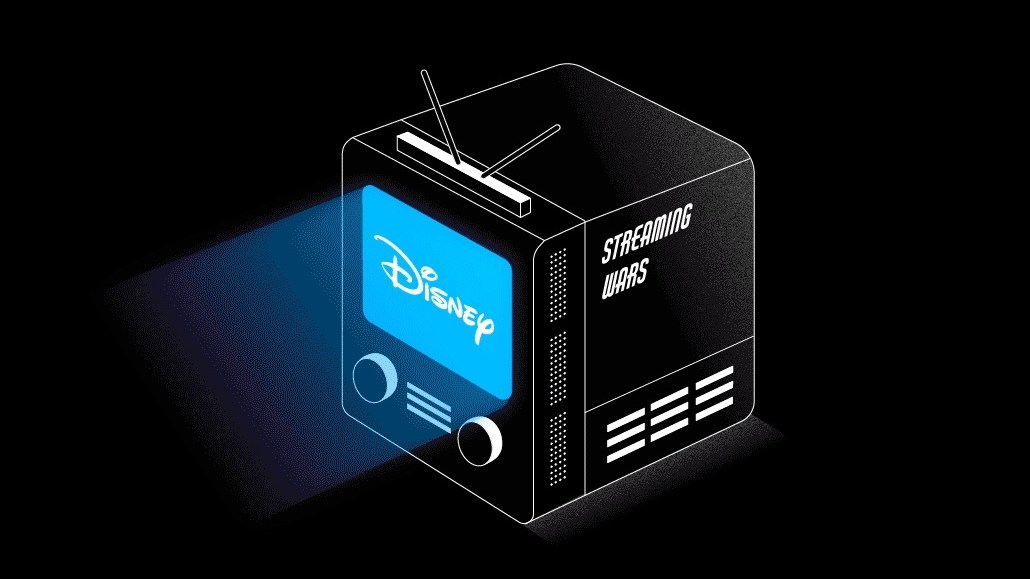Secure your place at the Digiday Publishing Summit in Vail, March 23-25
Why Disney’s $1.5 billion stake in Epic Games has implications far beyond gaming

Disney’s $1.5 billion stake in Epic Games is not just a play to make video games. It’s Disney’s first step towards a potentially transformative future media business: the metaversal theme park.
On February 7, Disney announced its plans to acquire a $1.5 billion equity stake in Epic Games, the developer of Unreal Engine and popular first-person shooter title “Fortnite.” The deal is a clear signal that the entertainment giant hopes to populate the metaverse to come with its homegrown characters and IP.
“This very firmly solidifies gaming as not just a large part of the entire entertainment ecosystem, but actually it’s future — because that’s the bet that Disney’s taking,” said Irina Shames, chief commercial officer of the gaming talent management and consulting firms Loaded and Open World.
The Epic Games deal is Disney’s largest-ever investment in games, but it is not the first. After Disney’s early attempts to develop games in-house failed, the company managed to find more success in the gaming sphere by licensing its characters to popular third-party titles such as “Kingdom Hearts.”
As Disney dips its toes into the metaverse, its strategy appears to be following a similar path. The company initially tried to stand up its own metaverse platform, tapping a former theme park executive to lead that effort, but shut down its metaverse department just over a year later. Through its deal with Epic Games, Disney is once again taking the third-party approach, plugging Disney properties into a pre-existing metaverse platform already chock-full of active users.
Make no mistake — this deal is a metaverse deal, even if Disney’s official statement included no mention of the term. The metaverse might not be the buzzword it once was, but Epic Games is still all-in on its goal to build an immersive virtual world that transcends gaming, and Epic founder Tim Sweeney has always used the M-word to describe his vision for the future.
“What we’re seeing right now is following in the footsteps of Lego’s massive success on ‘Fortnite,’” said Joe Ferencz, CEO of the metaverse studio Gamefam. “Instead of trying to build proprietary metaverses, the most important IPs in the world are looking to Epic to be the platform on which they build their own metaverse.”
Epic Games was not the only potential acquisition target for a metaverse-hungry Disney. Roblox, for example, has also found success in building an immersive and engaging virtual world through games. But Disney has already spent years collaborating with Epic to promote Disney properties such as Marvel and Star Wars, making last week’s announcement a logical extension of that pre-existing partnership. With Disney buying in further, Epic’s gaming platforms might very well become a full-fledged showcase of Disney IP, much like the company’s theme parks in the physical world.
“At the end of the teaser video, they show a map. There’s different components to that map, like a Star Wars section,” said Loaded chief of creator monetization Brandon Freytag. “It’s almost to the point that it looks like a theme park.”
There are clear benefits for Epic to partner with Disney as well, particularly in light of the game developer’s fractious relationship with Apple, a company with which Disney has long enjoyed a close relationship. Following a dispute over Epic’s attempts to introduce a direct payment option to its “Fortnite” iOS app, Apple banned Epic from its App Store in August 2020 — but deepening its ties with Disney could help Epic circumvent the ban by publishing its games under Disney’s developer account, or by simply helping the company mend its fences with Apple.
When reached for comment, both Epic and Disney representatives directed Digiday to the companies’ official press release, declining to comment further. The companies did not specify exactly how much equity Disney would acquire in Epic Games through the $1.5 billion stake. Time will tell whether Disney continues to increase its share in the game developer, but Sweeney has long been vocal about the importance of his role as Epic’s controlling shareholder, so it is unlikely that he will willingly give up control any time soon.
“There’s probably a strong business case for Disney to look at acquiring Epic,” said GameFam’s Ferencz. “But managing a video game company, and creating synergy from that video game company, has always been a moving target for legacy media companies.”
More in Marketing

‘The conversation has shifted’: The CFO moved upstream. Now agencies have to as well
One interesting side effect of marketing coming under greater scrutiny in the boardroom: CFOs are working more closely with agencies than ever before.

Why one brand reimbursed $10,000 to customers who paid its ‘Trump Tariff Surcharge’ last year
Sexual wellness company Dame is one of the first brands to proactively return money tied to President Donald Trump’s now-invalidated tariffs.

WTF is Meta’s Manus tool?
Meta added a new agentic AI tool to its Ads Manager in February. Buyers have been cautiously probing its potential use cases.








